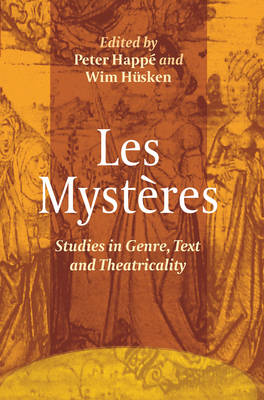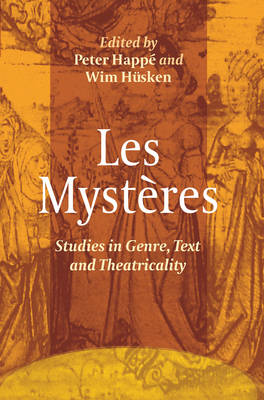
- Afhalen na 1 uur in een winkel met voorraad
- Gratis thuislevering in België vanaf € 30
- Ruim aanbod met 7 miljoen producten
- Afhalen na 1 uur in een winkel met voorraad
- Gratis thuislevering in België vanaf € 30
- Ruim aanbod met 7 miljoen producten
Zoeken
€ 160,45
+ 320 punten
Omschrijving
This collection of essays in English by scholars of international standing presents new insights into the contexts in which the fifteenth-century French mystères were created. It is centred upon the remarkable outburst of large-scale plays written for urban production and dealing with biblical and hagiological subjects which transformed the art of theatre in France and gave rise to a new and multi-faceted theatrical culture. Among the subjects treated are the means by which surviving texts preserve theatrical practice, and some of the ways in which the work of the principal dramatists Eustache Mercadé, Arnoul Gréban and Jean Michel interact with one another and with the work of others. The nature of some surviving texts is subjected to close scrutiny and this includes detailed work upon some manuscripts and their typology. Attention is also given to the related moralités, the convent drama, and to the large corpus of Catalan plays which deal with similar topics but in different circumstances. Further contexts are addressed through paradramatic aspects including sermons and the chansons de geste, as well as the political environment. One recurring feature is the nature and activities of ubiquitous and powerful evil characters and their theatrical and theological significance.
Alleen bij Standaard Boekhandel
+ 320 punten op je klantenkaart van Standaard Boekhandel
Beoordelingen
We publiceren alleen reviews die voldoen aan de voorwaarden voor reviews. Bekijk onze voorwaarden voor reviews.








